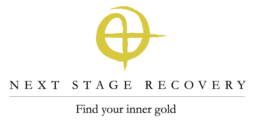What is meant by ‘realizing your potential’?
Let me answer by way of a story – a true one. As I’ve mentioned elsewhere, when I was young I had very little idea of who I was. Because of that, I made some lousy choices that really painted me into a corner, career-wise. In college I studied Mathematics and Statistics. I actually earned a Masters degree in Statistics. I spent six years of my life doing that. Looking back, the reason I went into math is that I had a couple of excellent math teachers in junior and high school. I got steered in that direction. Also, unconsciously, math and stats were safe for me emotionally. It was pure intellect and cognition – NO emotions. Due to the chronic trauma I suffered at the hands of my parents, way down deep I was a cauldron of seething, painful emotion, and math and stat helped me to keep a tight lid on it. Plus, in math and stat, everything made sense and there were solid answers to everything. That was another part of its safety. Nothing in my world made sense, and here was something where everything made sense. So, my choices were a key part of my unconscious defensive system, NOT an accurate reflection of who I really am.
My first job after graduation was as a statistician. Almost overnight, it dawned on me with a giant thud that I’d made a terrible mistake. I hated my job! For some odd reason, I sort of enjoyed STUDYING statistics, but hated DOING them. Sort of crazy, I know, but true.
I spent the next twenty to thirty years trying to overcome the damage done by that lousy uninformed choice I made. Let me tell you, it’s really, really hard to change fields when you’ve done extensive study in an exceedingly narrow, highly technical field that doesn’t relate to anything that actually goes on in the real world or in the business world. I spent many long years casting about, trying this, trying that – all in a desperate effort to find something that actually suited me; something I enjoyed, that I was good at. That process is extraordinarily painful when you have almost no insight into who you really are.
It wasn’t until around 1997 that I finally started to figure out who and what I really am. While I’m reasonably good at math and stat, I’m not really a whiz. Also, my whole being cries out against left-brain studies and work. Intensely linear/logical/left-brain stuff and me are like oil and water. They make my head hurt. In my early life I went in a direction 180 degrees opposite of who I really am. At root, I’m very strongly oriented toward right-brain interests and capabilities; things like psychology, human development, spirituality, art, music, culture. All of those have a very strong emotional/feeling component. In fact, you could almost say that they are ABOUT emotion. This awareness is behind my movement in the direction of getting my Ph.D. and of Recovery Coaching, among other factors.
So, what is the point of this story? The point is that by the time I was an adult, I was a giant ball of unconscious, untapped and unexpressed potential. To survive my childhood, without any awareness of it, I repressed and blocked probably 95% of who I really am – my real personality and my inborn, God-given capabilities and gifts. And that is what happens, in general, to all people who have been reared in a climate of dysfunction, abuse and trauma. To survive, we become what our parents or caregivers want us to be, and deny and repress all those parts of ourselves that do not fit with what our caregivers demand. We lose touch with who and what we really are, and become completely unconscious of our real identity. We make choices based on the false self we constructed, and our lives become built atop a false foundation of the false self. Very often, we become deeply unhappy with our lives, but have little idea about how to fix them.
In recovery, finally, we are liberated from the dark chains that bind us to our personal hell, and are given the opportunity to reclaim all those parts of ourselves that have been lost. This kind of work is beyond the scope of the traditional concept of ‘inventory.’ Here, we are not discovering and overcoming our flaws, or ‘character defects’. That sort of inventory is, of course, necessary for us to learn how to live to good purpose, and functionally, in the world. But it is insufficient to discover, reclaim, and express all aspects and capabilities inherent to our authentic self. That is a new kind of ‘inventory.’
This new inventory will unfold over time. It is a process of ongoing self-discovery and self-expression. We may have to mine our history, but in a new way: we are searching for traces of things we loved or enjoyed doing many years ago. We are searching for times, no matter how brief, when we felt truly alive. We need to mine our dreams, even though it may feel like they are dead. Our dreams give us insight into what our heart and soul yearns for.
As we mine these traces, we need to honor them, because they are traces of our soul. They are traces of our God-given identity. This process of discovering and honoring our whole being may lead us into new directions in life. It may cause us to go back to school, or take up a new hobby, or search for new and different kinds of interpersonal relationships. This is the point of departure. We start off on a new adventure: the creation of our new lives.

